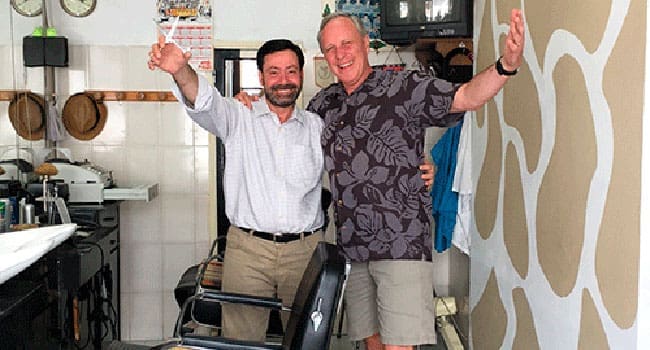 Fado is the essential working people’s music of Portugal.
Fado is the essential working people’s music of Portugal.
It’s rooted in the class struggles and awareness of the early 1800s, and first celebrated the lives of sailors, agricultural workers, tavern dwellers and ladies of the night. It evolved at the same time as the classic Portuguese guitar, a 12-string instrument crafted by a few artisan families who specialized in all aspects of its design and manufacture.
From the 1830s on, fado grew in popular acceptance to represent the dreams of a growing middle class, and broader Portuguese awareness of fado’s place in the realm of European music.
Hundreds of fadista (composers and fado singers) began to compose lyrics and poetry that greatly expanded fado’s repertoire.
It grew to embrace not just lost love and the pain of fate, but also the noble feelings of families who faced separation because of Portugal’s historic ties to the sea. It became the music of the sailors’ return from long voyages away; the music that unites husband and wife once again; the music of fathers rejoined with their children; the music of young lovers hugging ship-side at the docks.
During the “New State” dictatorship of Antonio de Oliveira Salazar, who was Portugal’s prime minister from 1932 to 1968, fado was appropriated by the state as a tool of propaganda for the corporatist, authoritarian government. This theft of musical culture was abhorred by the anti-Salazar revolutionaries, who drove fado into a period of disrespect. Many associated it with disloyalty to the goals of democracy and freedom.
However, after Salazar’s regime was overthrown in the Carnation Revolution of 1974 (four years after his death), fado once again asserted itself as the people’s music. Great fadista like Amalia Rodrigues, “the queen of fado,” began the process of popularizing the music worldwide. In her lifetime (she died in 1999) she sold 30 million records. Other fadista were soon to follow, like Madredeus, Dulce Pontes, Mariza and Cristina Branco.
My exposure to fado began with a tour of Lisbon’s superb Fado Museum, located in the Alfama district, part of the city’s historic Baixa (or Lower Town). The museum is very close to the harbour where today the Mediterranean cruise ships tie up, maintaining fado’s old connection to the sea and sailors’ traditions.
Filled with the history of fado, my wife and I walked out into the Alfama, which is Lisbon’s historic district of fado bars, restaurants and small concert halls. As it was just past 2 p.m., all of the music clubs were still closed, awaiting the evening. Recorded fado music could be heard in many of the cafes we passed, most of which were catering to cruise ship passengers on day leave in the Baixa.
Restaurant window displays of pastel de nata, Lisbon’s defining custard tart treat, enticed us as we strolled by. One or two also featured octopus dogs, a generous length of roasted tentacle in a bun.
My wife spied a barbershop in a small opening beside a restaurant. “Michael – you wanted to get a Portuguese haircut, why not go in now, while I order us espressos and a light lunch next door?”
I needed a haircut. I walked into the small one-man shop to find the barber seated at a small table in the rear, calmly eating his barbecued sardine plate with a shiny knife and fork. Behind him on a shelf was a radio and fado was playing wistfully.
The barber spoke to me in Portuguese and I answered by holding up five fingers and “Can I return in five minutes?”
He pointed at himself and said, “I am Afonso.”
“I am Mike,” I replied to a smile.
I walked back to Lynn at the espresso bar and quickly ate a salad she had ordered, excited by the prospect of a local haircut, set to fado in the Alfama.
After finishing my lunch, I returned to Afonso’s shop to find him sweeping up the cut hairs of the morning, and washing his combs and scissors.
The haircut came with a wash and blow-dry styling, all performed with the utmost care and skill. Afonso poured his efforts into my scalp, using well-worn scissors and wooden comb. Fado ballads poured from his shop radio as he cut.
I thought to myself, “This is the most soulful haircut I have ever had.”
My wife also thought it the best.
Mike Robinson has been CEO of three Canadian NGOs: the Arctic Institute of North America, the Glenbow Museum and the Bill Reid Gallery. Mike has chaired the national boards of Friends of the Earth, the David Suzuki Foundation, and the Canadian Parks and Wilderness Society. In 2004, he became a Member of the Order of Canada.
The views, opinions and positions expressed by columnists and contributors are the author’s alone. They do not inherently or expressly reflect the views, opinions and/or positions of our publication.


